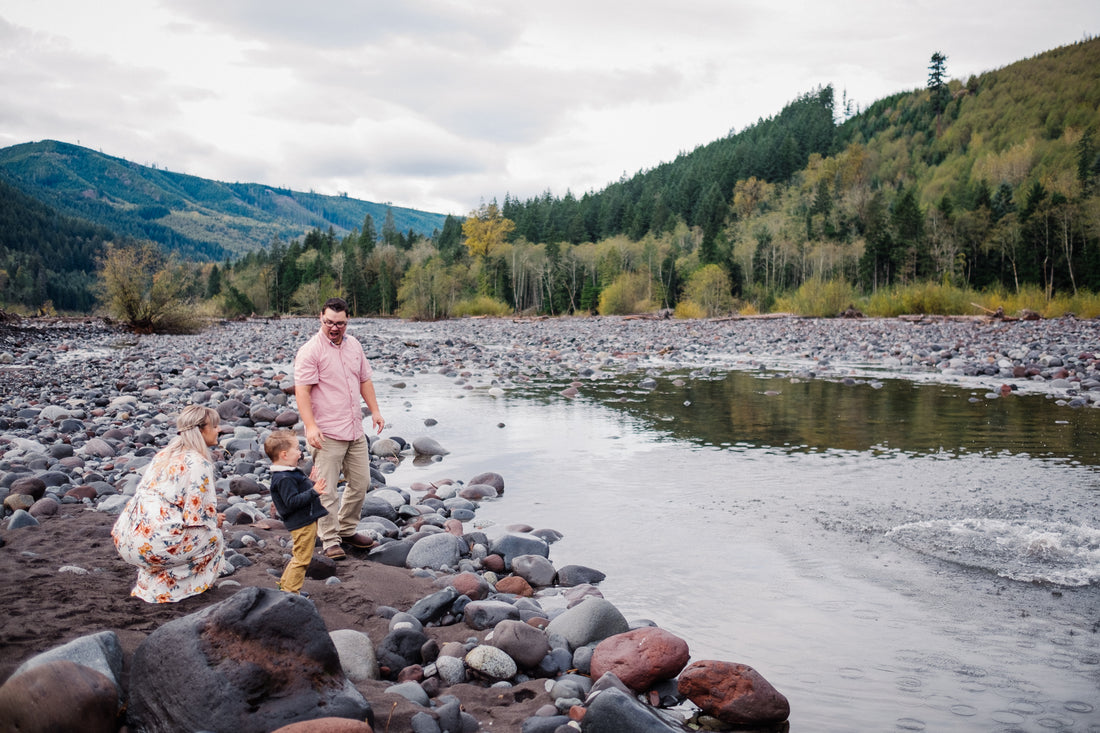Motherhood comes down to taking measures to ensure your child feels loved and safe. But what happens when a child experiences something new, safe and quite normal, without being able to process that new information fast enough to comprehend it? Some parents might think their child is just acting up or violently misbehaving, but really, that child may be showing signs of being highly sensitive.
This isn't an illness or a disability, it is merely an ability to take everything in their environment into account before acting. In fact, Psychology Today says, "with a sharpened sense of awareness these children are often gifted intellectually, creatively and emotionally, demonstrating genuine compassion at early ages. The downside is that these intensely perceptive kids can also get overwhelmed easily by crowds, noises, new situations, sudden changes and the emotional distress of others." And because adventuring can change the pace of any given day rapidly--introducing many new things at once--this can be a huge hurdle for parents of sensitive children to overcome. Here's what I learned after discussing my own son's sensitive tendencies:
Do Your Best to Introduce a Variety of Settings and People to Your Child
When my husband and I introduce a new place (or activity) to our son, we always, always,
always go to that place when we know it will be less crowded. For example, we really wanted to take our son to the local children's museum. Knowing his sensitive tendencies, we knew that he would have a difficult time processing the new space we were bringing him into, as well as the dozens of children, and even more parents, crowding into the small museum. We knew that the high level of noise, accompanied by strangers and unfamiliar play structures and activities, would be very overwhelming to him. We wanted him to be able to acquaint himself with this new place before bringing him into it while it's crowded with people. We took all of this into consideration before planning our visit. Luckily for us, we had a free gap in our schedule to try out the children's museum on a weekday afternoon, only sharing the place with a handful of other children and parents, and marking the trip a successful one!
When There's No Way Around It, Read Your Child's Cues and Adjust Accordingly
Sometimes, there's just no way around it. Your child will be thrown into new situations constantly when you leave the safety and familiarity of your home. Remember to have patience, and take big deep breaths if you feel yourself getting anxious or reaching a point of blood-boiling anger (we've all been there). Often times, the only way around the uproar of your child is to remove the child from the environment that's causing the meltdown. Trust me, it's just as painful for you as it is for your child. Most times he won't even understand what's causing him to act that way. But you can control your actions in that moment, and what you do will ultimately decide how your child reacts. Learn to see this sensitivity as a gift! Your child feels everything around him incredibly deeply and it could be his biggest strength one day.
Your Adventures may Take More Planning and Overall Consideration for Your Child's Needs
While this isn't a bad thing, time doesn't grow on trees! Many of us are tight on time, and taking extra time to travel or adventure with your highly sensitive child may take even more time. There have been so many times when my husband and I have had to step out of a family function, or leave an activity all together, because our sensitive boy couldn't process all that new input while behaving in a way that didn't cause disruption. It won't always be this way. One day he will grow up and be able to mange those feelings appropriately.
Embrace and accept your child as he is--highly sensitive and wonderful. Hug him tight and make his home life a safe space for him. Engage with him regularly and let him experience the warmth of other people's homes and lives. He will come to learn that while these situations and environments are different, they can be safe just like his home. Actively pursue play dates and other nurturing relationships that can assist your child in learning how to manage other people and places.
Written by Lindsay Helm







